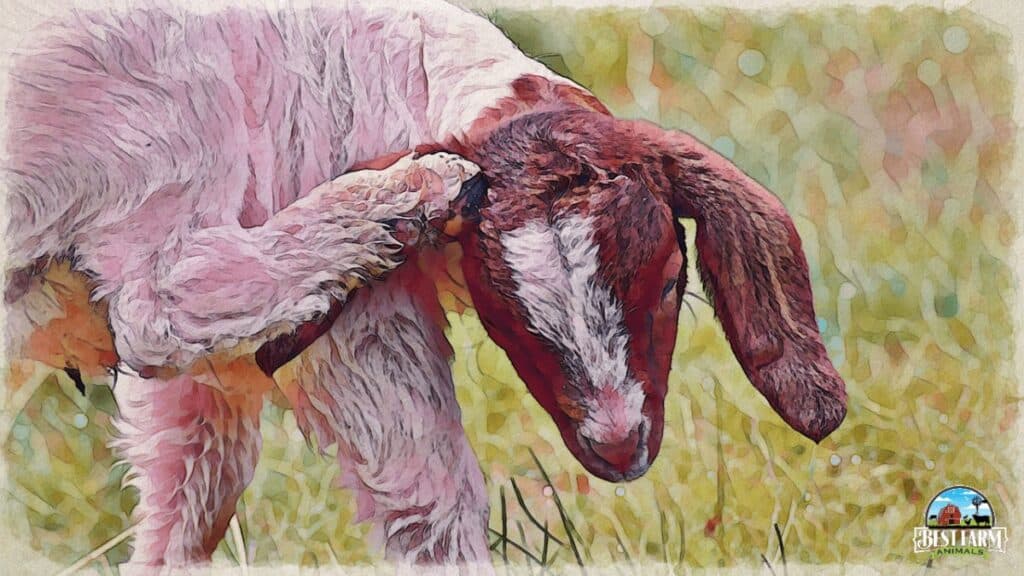Some of my fences are stretched and bent from the excessive rubbing of my goats scratching against the fences. Some goats scratch against things more often than other goats.

Goats, much like other domestic animals often scratch for various reasons. Sometimes they scratch just because they are goats, and that is what goats do. Other times they scratch because of something that should be treated. There are five reasons goats may be itching, and there are also solutions humans can do to intervene and make life more bearable for their itchy goat.
Why do goats like to scratch? Goats scratch when they’re shedding, have mites, fleas or ticks. They might also have other external parasites like lice, or experiencing a health problem such as dermatitis or mange. Bored goats will scratch for fun. If your goats scratch more than normal-it’s a sign that something is going on.
Luckily, there are solutions you can do to intervene and make life more bearable for your itchy goat.
The nine reasons goats may be scratching are:
- Why Is My Goat Scratching Its Head and Body?
- Itchy Goats Scratch to Shed Winter Coat
- Goats Get Mites
- Fleas and Ticks Cause Itching
- Goats Get Ticks (Keds)
- Goats Want Human Attention
- Goats With Mange Display Intense Scratching
- Your Goat Has Ringworm That Causes the Itchy Red Spots
- Goats With Itchy Ears May Have Dermatitis
- Goat Itching Treatment
- What Goats Need
- How Goats Catch Parasites
- Goats As Pets
- Keep Goats Entertained
- Other places Goats Love to Be Scratched
- How to Groom a Goat to Help Stop Itching
- Goat Scratching FAQs
If your goat is itching, there may be an important reason. While goats often just itch during the course of a day, this article will outline a few things goat owners might do to reduce daily scratching and solve any parasite problems that may be causing scratching.
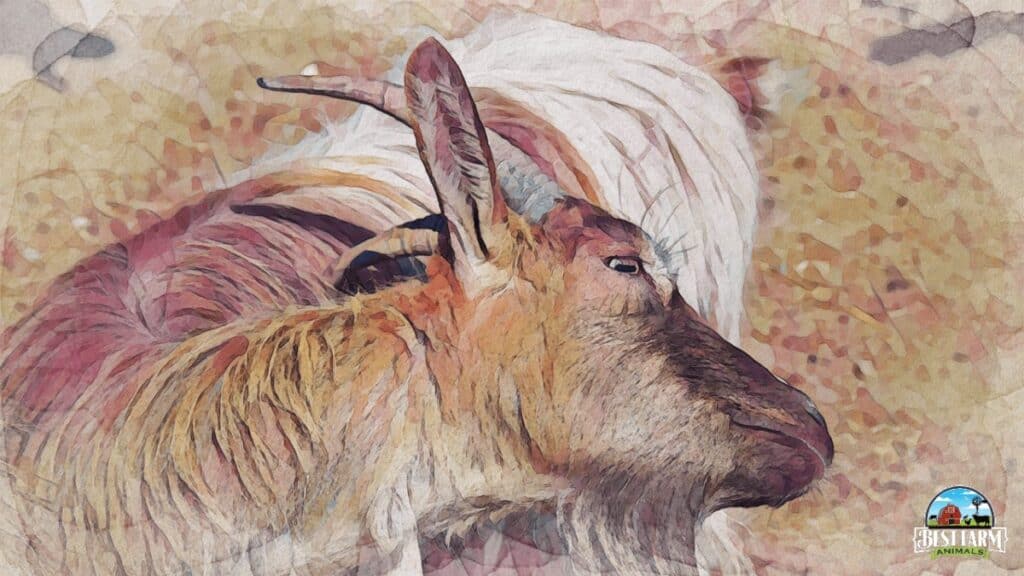
Why Is My Goat Scratching Its Head and Body?
If your goat constantly scratches itself, there’s a reason behind it. Goats like being scratched the most on their front chest or their underarms. They also prefer the top of their heads to be scratched and petted. But, this is not always the case when goats start over-scratching.
Why are my goats so itchy? Goats are itchy from dry skin that’s caused by shedding their winter coat, dry air, parasites (mites, ticks, or fleas), a nutritional deficiency that leaves their skin unhealthy, or boredom. Most often, goats are itchy because their winter coat is shedding or because they have mites or fleas. Goats may also scratch when they are bored without being uncomfortably itchy.
Itchy Goats Scratch to Shed Winter Coat
Goats love to scratch against fences and borders to facilitate shedding their winter coat. In the spring and summer goats shed their thicker, hotter coat of hair. Goats often rub and scratch against stationary objects.
My boer goats love to rub against the fences- even more than my Sanaans. The bucks will spend hours a day walking the fences rubbing against them. They do this because they have such thick hair and the woven field fence catches the winter coat and cleans it off.
You can help your goats shed their winter coats by brushing them regularly. A good washing and conditioner will feel good to them.
Goats Get Mites
Mites are the first thing you have to check for when a goat starts scratching to be on the safe side. The itch mite is the mite that lives on goats and sheep. Mites can make a goat absolutely miserable, and the goat will itch 24/7.
Usually, if you only have one or two goats, your goats are not going to get mites. Especially if you are regularly grooming your goat.
If your goat does get the itch mite, you need to treat it right. Check out my resources section for goat treatments. If left untreated, the itch mite infestation can lead to a bacterial infection on the skin.
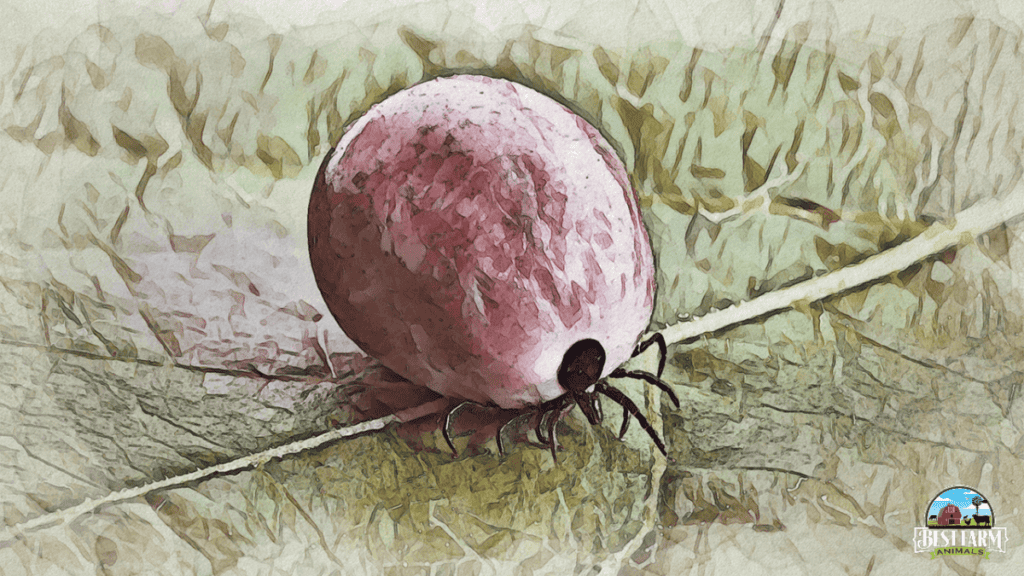
Fleas and Ticks Cause Itching
Goats are sometimes compared to dogs and also get fleas and ticks. In fact, if a goat is around a dog, the goat can catch fleas from that dog and vice-versa.
But if they get the same parasites as the family dog, is the treatment the same? Not necessarily. When removing fleas and ticks, it helps to use insecticide developed for use on goats, not on dogs. This insecticide should be put on all over the goat, so the entire goat’s body is covered.
The person who is applying the medicine should be wearing gloves. Ticks that are visible need to be removed by using tweezers.
The living quarters need to be completely cleaned, and all bedding needs to be changed. If you have a dog who is near the goat, the dog should be treated as well, but with treatment suited for dogs. Dog and goat treatment is not interchangeable.
Your goat should be treated for fleas and ticks again in about 3 weeks. Use the same procedure as before. Go over your goat literally with a fine-tooth comb and make sure there are no visible signs of fleas and ticks or you should start the whole process over again as though it were the first treatment. You may have to repeat two or three more times.
Goats Get Ticks (Keds)
Goats get ticks, or keds. Keds are sheep ticks. They are similar to a wingless fly that nests on sheep and can move to goats.
They will cause a goat to itch incessantly and to rub against things in an attempt to remove them. The treatment for the ticks and fleas will also remove keds. Keds are visible and can be removed by using tweezers. If you only have one or two goats, the chances of getting keds are low.
They will cause a goat to itch incessantly and have to be removed. The treatment for the ticks and fleas will also remove keds. Keds are visible and can be removed by using tweezers. If you only have one or two goats, the chances of getting keds are greatly reduced.
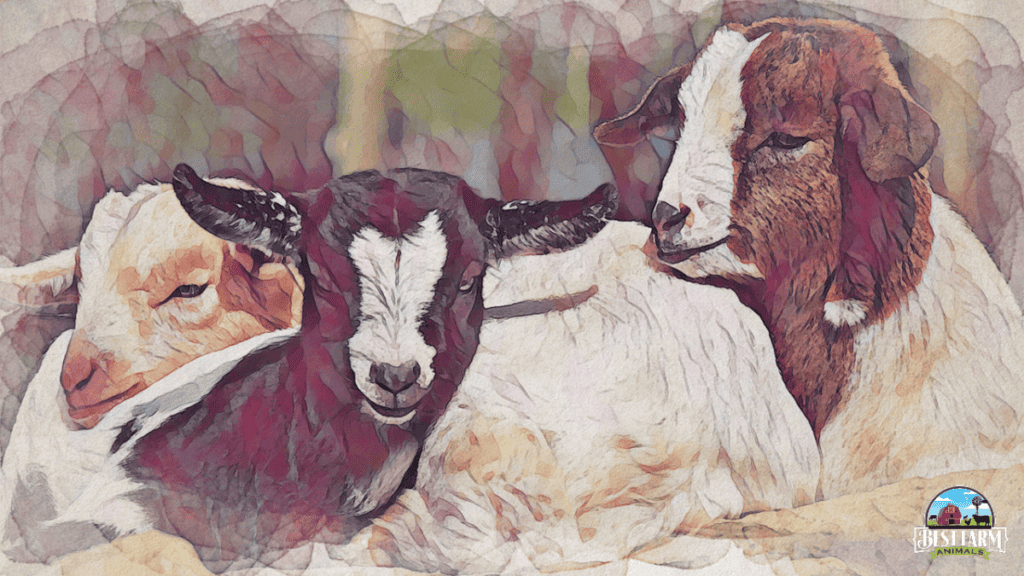
Goats Want Human Attention
Another reason goats itch and want to be scratched is because they want human attention. Goats resemble dogs in some ways in that if they have been around people, they love and want attention from their owners in many of the same way dogs do.
- Goats follow people around
- Goats stare into their owners eyes
- Goats bump up against people’s legs to get attention
- Goats nuzzle their owners
- Goats seem to crave human touch and attention
Often a goat does not have fleas, is not losing fur, or does not seem to have any just cause for scratching other than the fact, he or she wants the human in his or her life to scratch his back, head, or belly. Goats, like dogs, love human touch and attention. And this usually comes in the form of a scratch or a rub.
One study of goats (below) by Christian Nawroth found that goats seem to stare at humans when they want something. And usually, the one thing that goats want is to be scratched. Goats simply want to be scratched for no good reason.
Nawrath found behavior in goats to be extremely similar to that of dogs and horses. Human attention and interaction seem to guide much of their attention-getting behavior.
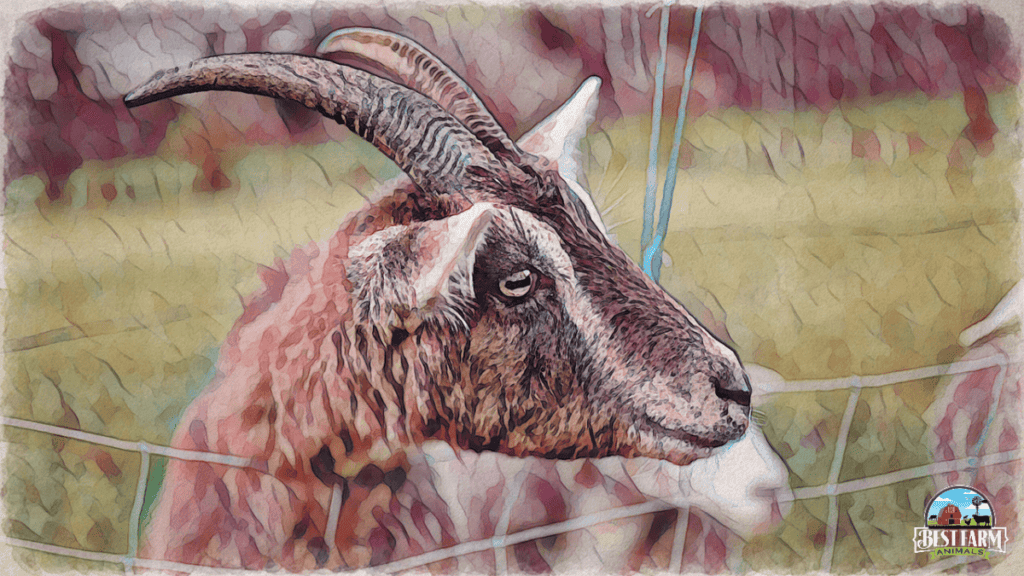
Goats With Mange Display Intense Scratching
Mange is a severe form of dermatitis that causes intense scratching in goats. It is caused by ectoparasites like lice (pediculosis) and mites (acariasis). These parasites usually inhabit goats’ skin and feed on their lymph/blood, subcutaneous secretions, and skin debris. In extreme cases, the ectoparasites may puncture your goats’ skin, giving room for bacterial attack. The signs of mange include:
- Skin damage
- Poor growth rate
- ● Exhaustion
- ● Rubbing
- ● Intense scratching
You can prevent mange by practicing a closed herd policy, regularly inspecting your goats, and quarantining and treating infested goats. Also, do not allow your goats to intermingle with your neighbor’s goats. If you buy new goats, quarantine them for at least three weeks before allowing them into your flock.
Your Goat Has Ringworm That Causes the Itchy Red Spots
The appearance of itchy red spots on your goats’ skin could mean they have ringworm. Ringworm infestation may look like spore infestation, but they form circular lesions on the skin (skin patches). The lesions may look discolored, raised, or crusty.
Symptoms of ringworm include:
- Circular lesions
- Persistent itching
- Localized and random hair loss
- Rubbing against surfaces
- Skin discoloration
- Red, cracked, scaly skin
If you notice these signs, isolating and treating the affected goats is best. Baby goats are more vulnerable to ringworm, so you should provide them adequate protection. Note that ringworm is zoonotic (can be transmitted to humans).Therefore, you have to be careful when dealing with ringworm-infected goats.
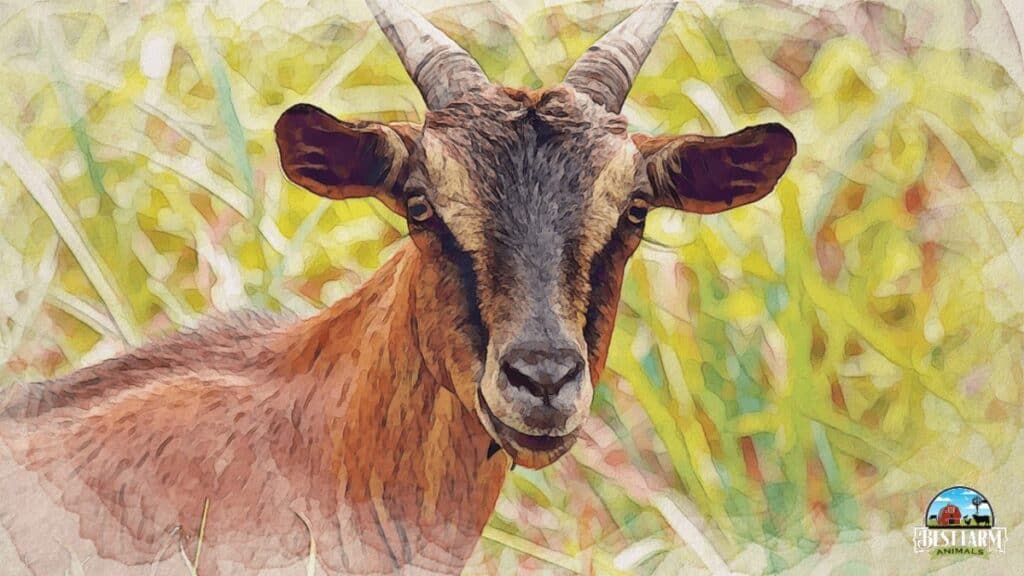
Goats With Itchy Ears May Have Dermatitis
Dermatitis is a skin infection caused by Dermatophilus congolensis. The bacteria usually attack damaged skin and the affected area may appear crusty and lumpy. Dermatitis mainly causes itchy ears, but can also cause the animals’ legs and noses to itch. The disease is common in young goats because older ones may have developed immunity after previous attacks. Dermatitis spreads faster in wet or humid conditions and can easily attack wet animals.
Dermatitis can only be confirmed by laboratory testing of animal scrapings and scabs. In most cases, the affected animals can recover spontaneously, but to hasten recovery, vets usually use antibiotics like oxytetracycline, penicillin, or procaine.
The treatment may take up to six months before the animal recovers fully. Dermatitis can get severe in animals suffering from malnutrition. So, to prevent the disease, feed your goats well and don’t yard wet goats for long.
Goat Itching Treatment
If you have a goat and your goat is itching, there are several things you need to check. The first thing to check is to make sure your goat does not have mites. If your goat has an infestation of mites, you have to get rid of those mites as quickly as possible.
As previously mentioned, goats have to be inspected carefully. If your goat shows any sign of mites, fleas or ticks, you should treat accordingly for whatever the infestation dictates.
However, if you have one or two goats, the chances of these parasites are smaller. By and large, your goat’s incessant itching is probably not either one of these problems. If it is springtime, your goat could be losing her winter coat, and this is causing her to need her back scratched a little more.
The solution for this is to possibly bath in moisturizing shampoo for animals. But other than this, there isn’t a solution. To some extent, goats lose a winter coat, and they will itch a little. Ensure the goat is not scratching any extra for another reason and give the goat extra love and care through the itching time.
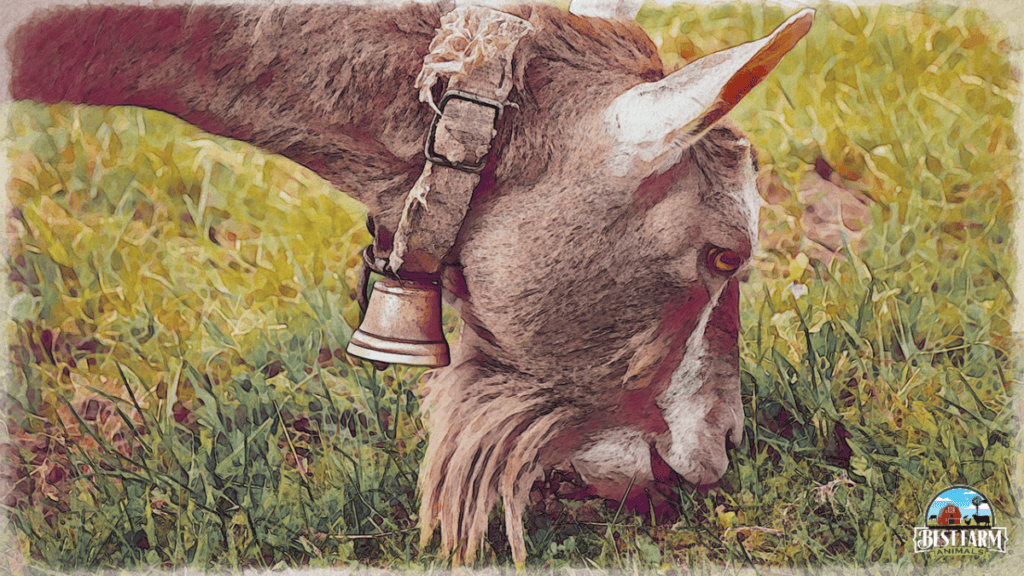
Ways to Help an Itching Goat:
- Isolate infected goat(s)
- Check if the goat has mites or lice and remove them immediately.
- Check the itchy area. If swollen and reddish, clip the hair around it and scrap off all scales before applying a topical antibacterial or antifungal cream.
- If you notice circular lesions on your goats’ skin, treat for tapeworm
- If you suspect Dermatitis infection, take the goat to a vet for diagnosis and treatment
- If the itchiness is caused by the goat losing her winter coat, bathe her using moisturizing shampoo.
- Disinfect all equipment and tools you use to handle infected goats.

What Goats Need
Goats need 6 to 8 hours of grazing every day. If they are getting less grazing time, this could also be a problem with the itching. Boredom and genuine hunger can cause goats to itch more. Often people think that if they provide ready-made food for their goats, the goats are fine. But goats need grazing time.
A goat isn’t itching if she is grazing. Make sure the pasture isn’t too full of rich clover or Alfalfa hay. If your goat is a pet and you don’t have a pasture, you still need to provide hay for your goat to eat. While this doesn’t solve the boredom problem of itching, you will at least know you are giving your goat a balanced diet.
Although some consider goats to be barnyard animals, goats need to be clean. A clean goat is a happy, less itchy goat.
How Goats Catch Parasites
Goats actually pick up parasites that cause itching from other goats or from dogs and cats, so if you only have one goat or two goats, the chances for parasite infection is greatly reduced for your pets.
Regardless of how many goats you have, if you have a goat in a pasture during the day, the chance will go up for a goat to catch a tick. This exposure makes it even more important to regularly brush and comb your goat almost daily in order to catch this parasite.
But, If you catch a tick early, you can remove it before it causes problems such as Lyme Disease and Rocky Mountain Spotted Fever. Both of these are transmitted in goats and humans.
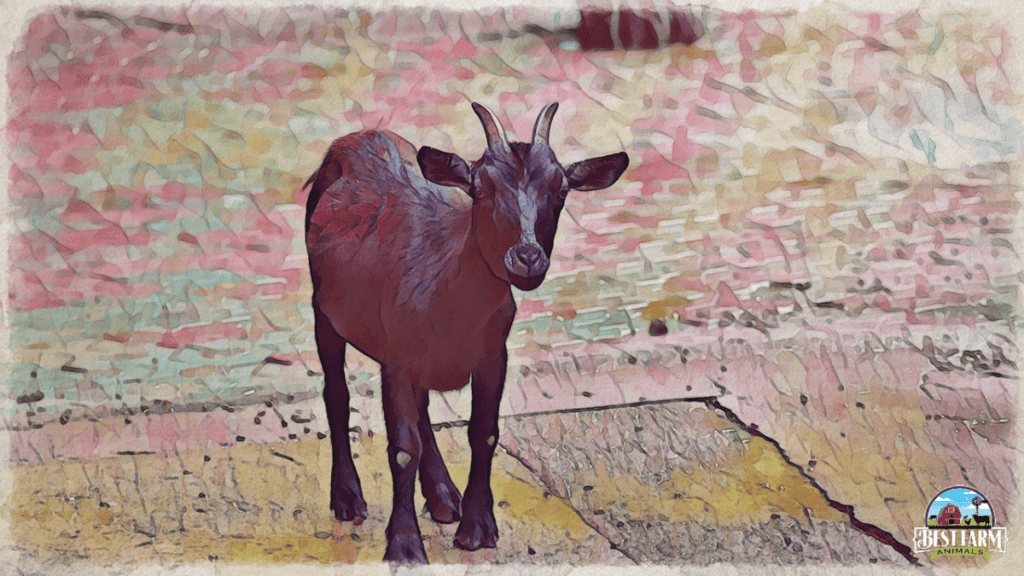
Goats As Pets
When a goat is a pet, a goat will often see their people as “human scratching posts.” This is a lot like how dogs and cats will rub up against their owners to get more love. And goats often stare to get what they want. Christian Nawroth found that goats often stare at their people.
This staring by goats is a form of looking at their humans get what they want. And usually what they want is to be scratched, loved, or fed. Goats have places to scratch that they cannot reach themselves, just like anyone else. And that’s what a good human is for. So when your goat stares at you, it is possible he or she only needs to be scratched behind the ears.
Goats that people keep as pets tend to be cleaner and itch less than goats in a regular barnyard. Goats that are kept separate from other animals do not usually get lice and mites that herd goats usually get.
This means that pet goats are usually free of the parasites that herd goats often contract because they are around other goats. So by and large, most pet goats itch because they are either shedding or they may have some parasite they may have contracted from a field, such as fleas or ticks.
Keeping fleas and ticks off pet goats requires the goat owner to use a flea insecticide and treatment that is safe for goats. The key is to get on the infestation quickly and be diligent in ensuring that any parasite does not get a foothold on your goat.
Keep Goats Entertained
Goats like to have fun. A pasture or a yard for goats should have stumps and hay bales to climb on to keep them entertained. A happier goat is a goat who has less time to itch.
Goats are high energy and love to move about. If goats have a yard full of things to climb on and play with, they will be entertained when their humans are not around. This will keep your goat from self-destructive behaviors such as scratching and biting at his skin.
If a goat has a parasite or a real reason for scratching, toys are not going to fix the reason for itching, but if the goat is itching out of boredom, having things for your goat to play on and to keep your goat amused during the day, will help.

Why Do Goats Scratch their Horns?
Goats often scratch the area around their horns. Sometimes people dehorn their goats, which has mixed reviews of goat owners. Some passionate goat owners feel this is cruel and a painful process. Goats itch around their head and their horns just happen to be there so it looks like goats are itching their horns.
However, goats love to have their head itched around their horns and will often rub up against a stump or a tree in order to accomplish this goal. Goats, like many animals, love to be scratched behind their ears and in the back of their neck and this also includes the horn area.
Other places Goats Love to Be Scratched
Goats love to be scratched on their backsides as well as on their heads.
Scratching on their backs is why you often see goats rubbing up against fence posts. Goats cannot reach their backs and often have an itch right in the middle of that backside area.
Goats also loved to be scratched on their bellies. People sometimes think their goats are being silly when they are sliding around on their tummy. Actually, they are trying to scratch that area. Goats like to have their bellies rubbed. And don’t forget to scratch behind your goat’s ears and around your goat’s face.
The ears and face are sensitive areas for the goat. The hair is thinner and the goat can feel you touching his or her skin more acutely in the facial area. Goats love having their faces scratched which is part of the reason they move into their human’s personal space with their face.
How to Groom a Goat to Help Stop Itching
There are ways to groom a goat to reduce the itching. For starters, giving your goat a daily brushing might work wonders to reduce the urge to itch. This will also help you to give your goat a good check every day to make sure there are no fleas, ticks, or other parasites who have come to visit on your goat.
You should first use a harder brush to make sure and get the loose dirt and mud from the day out of the fur. Then follow up with a curry comb to get out dirt you can’t see as easy on your goat. Finally, use a soft brush to finish the massage and help the goat have shiny smooth hair.
Sometimes in the late spring, you might want to clip some of the heavier hair off of you goat to help with shedding and itching due to shedding. This will also make room for new growth of fresh smooth hair that will grow in after the clipping.
The grooming process is one way to help your goat relax and to reduce the itching. When grooming your goat, you are also building trust and bonding with your animal. This is one way to get closer to your goat and to let your goat know you are taking care of your goat’s needs each and every day.
Don’t bathe your goat very often unless your goat needs a flea bath. Goats get sick the most often from being wet.
But,
Brushing your goat will help to keep the hair clean and silky without bathing your goat very often. Bathing sometimes dries out a goat’s skin and makes the goat itch more.
You are feeding your goat and helping your goat’s skin and hair feel much better by the way you brush and groom your goat. Your goat knows you are caring about her. In return, your goat is a loyal pet almost like a pet dog. Goats may wonderful pets once you get the scratching under control.
Goats will look to you to help with the itching. Once you have ruled out parasites, losing hair, and other physical reasons for the itching, it might just be your goat wants your attention and friendship. Give your goat some brushing and a scratch and you will have a much happier and healthier pet.
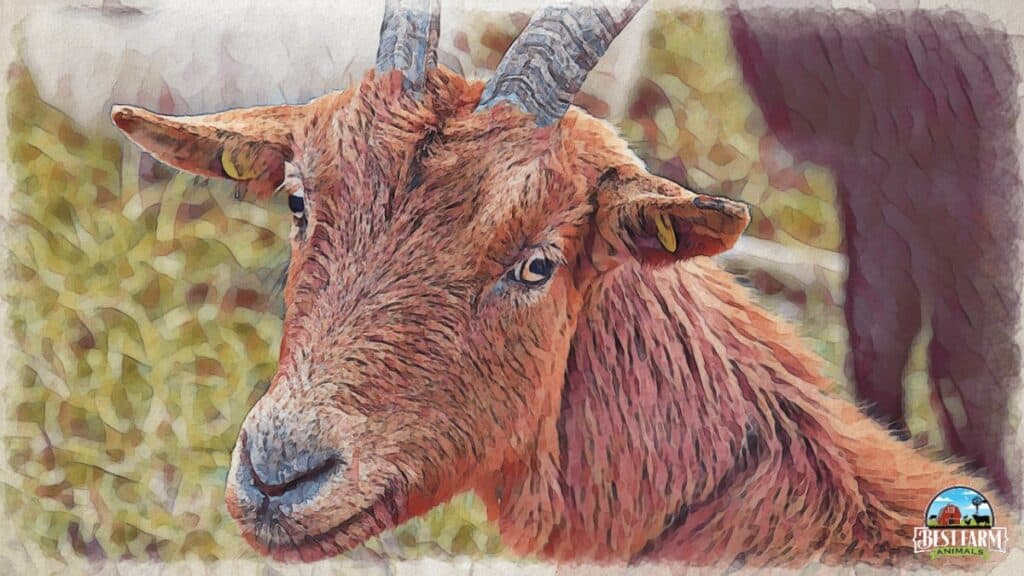
Goat Scratching FAQs
Goat scratching can result from various reasons, including parasite attacks or weather changes. If your goat scratches constantly, find out the cause and treat her immediately. You may lose your goat if you allow the condition to stay longer.
Why do baby goats scratch so much?
Baby goats scratch because their skin is still delicate and easily irritable. Scratching can be a sign of infection by lice, fleas, mites, or other parasites and worms. Scratching could also result from nutritional deficiencies. Dry skin and low humidity also cause scratching. If pathogens cause the scratching, treat the goats immediately.
Should I bathe my goat?
Don’t bathe your goat frequently unless your goat needs a flea bath. Goats get sick the most often from being wet. But, brushing your goat will help to keep the hair clean and silky without bathing your goat very often. Bathing sometimes dries out a goat’s skin and makes the goat itch more. Instead, give your goat some brushing and a scratch, and you will have a much happier and healthier pet.

Conclusion
There are many causes of goat scratching. Some of these causes are natural, like when there is a change in weather or when the goat is shading hair. Such cases should not cause an alarm. A well fed and healthy goat may also scratch just to show affection. However, if the cause of goat scratching is an infection or parasite infestation, it pays to act fast. The longer you wait, the worse the condition will become. Likewise, if the scratching is caused by poor nutrition, you must start feeding your goats well immediately.
References
The Royal Society Goats display audience-dependent human-directed gazing behaviour in a problem-solving task
My Essential Goat Supplies
This list contains affiliate products. Affiliate products do not cost more but helps to support BestFarmAnimals and our goal to provide farm animal owners with accurate and helpful information.
This little giant bucket fits on a fence and this one’s easy to carry.
A sturdy dog collar is essential. Don’t do rope (they’ll break and tangle) or chain (injury!).
A Black Water Tub is way nicer than buckets that tip over. I like to get a 20 or 30-gallon in each pen so my goats have plenty of water, but you can get 100-gallons if you have a lot of sheep in one pen.
Loose minerals in a small bag or a Purina 50 lb bag, and a mineral feeder for free-choice is the best option. One side holds minerals, and the other holds baking soda. Don’t feed sheep goat minerals because it usually contains copper- something that is fatal to sheep.
Hoof trimmers are a necessity because you’ll need to trim your sheep’s hooves every few months. These are nice for the price.
Don’t make the mistake I made by waiting to order a drench gun before you need it. I was surprised by how often I use it. It helps with bloating, dehydration, and other ailments. Here’s a good drench, but you can also drench a bloat solution or water if dehydrated.
Digital Thermometor for when your lambs act sick. You’ll need to know if their temps are too low or too high so you can accurately diagnose the issues.
Vetericyn for wound care. It makes a big difference in a speedy recovery.
Check out this list of goat milk supplies you need if you have milk goats.

